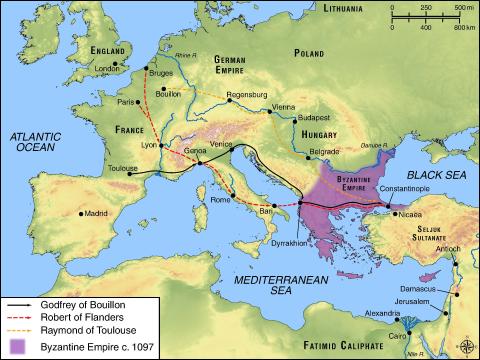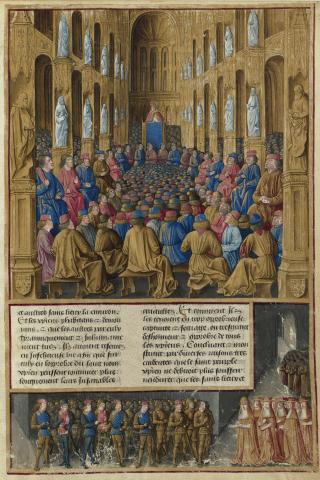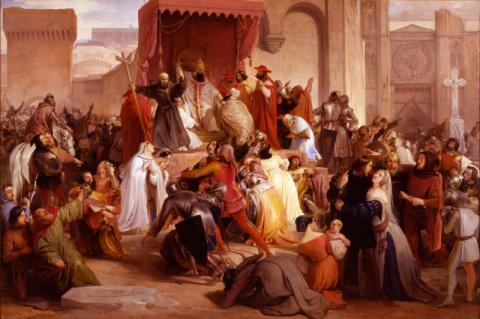Preaching the First Crusade
[1.1.1] Cum iam appropinquāsset ille terminus quem dominus Iēsus cottīdiē suīs dēmōnstrat fidēlibus, speciāliter in ēvangeliō dīcēns: “Sī quis vult post mē venīre, abneget sēmetipsum et tollat crucem suam et sequātur mē,” facta est igitur mōtiō valida per ūniversās Galliārum regiōnēs ut, sī aliquis Deum studiōsē pūrōque corde et mente sequī dēsīderāret, atque post ipsum crucem fidēliter bāiulāre vellet, nōn pigritārētur Sānctī Sepulchrī viam celerius arripere. Apostolicus namque Rōmānae sēdis ultrā montānās partēs quantōcius profectus est cum suīs archiepiscopīs, epīscopīs, abbātibus, et presbytērīs, coepitque subtīliter sermōcinārī et praedīcāre, dīcēns, ut sī quis animam suam salvam facere vellet, nōn dubitāret humiliter viam incipere Dominī, ac sī dēnāriōrum eī dēesset cōpia, dīvīna eī satis daret misericordia.



